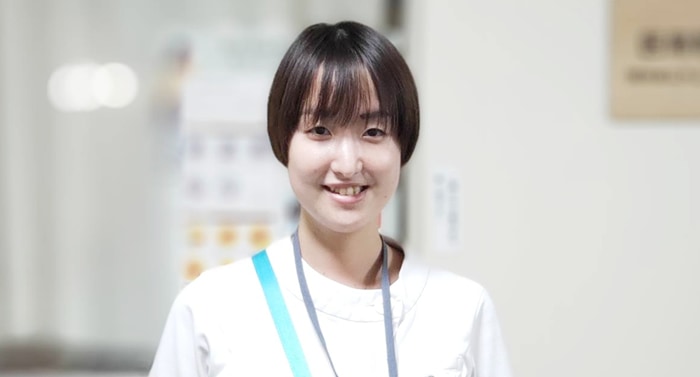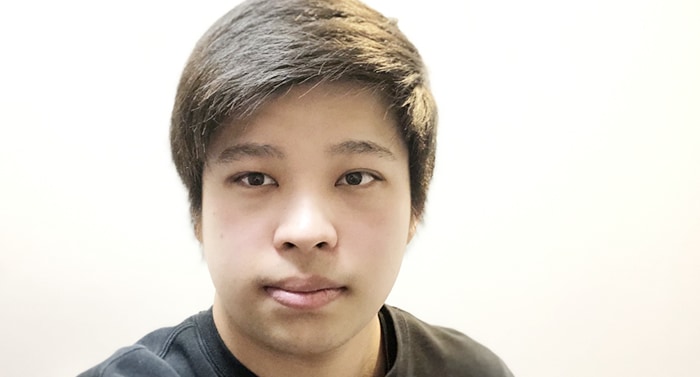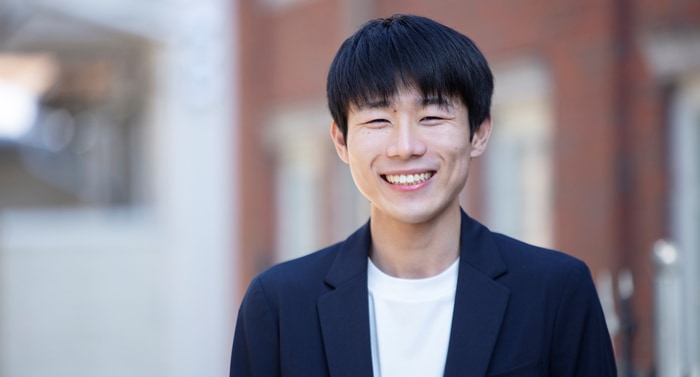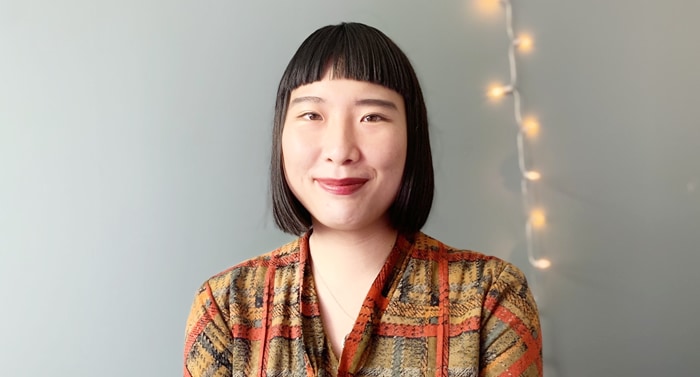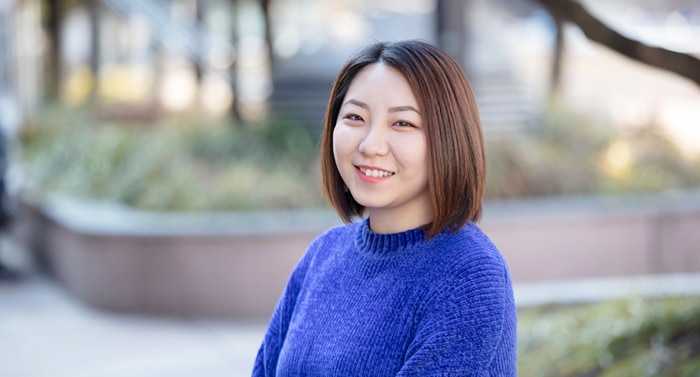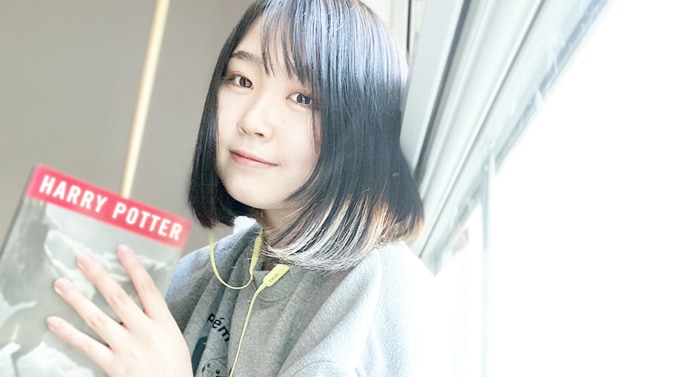子ども達のレジリエンス
CHILDREN’S RESILIENCE
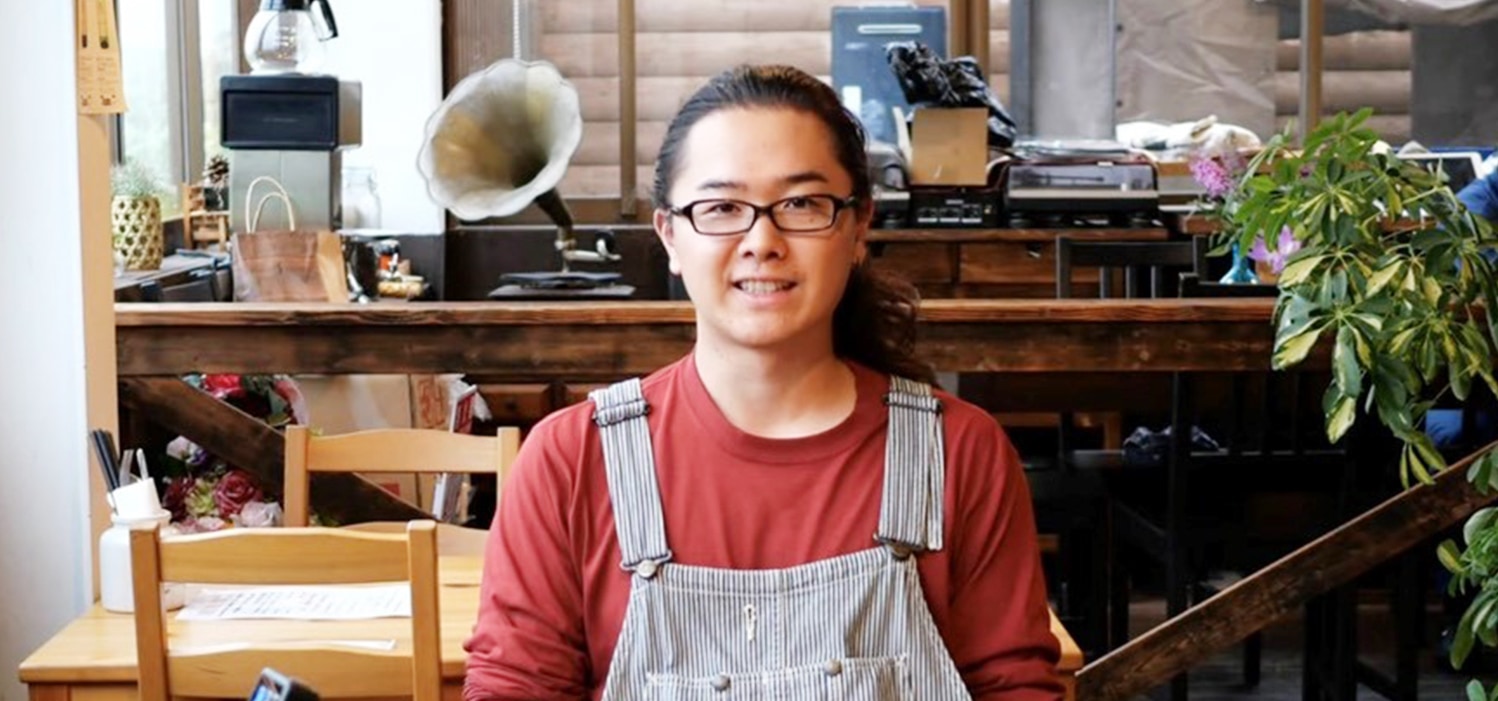
復興を志す01
自分が次の世代に、この美味しさを残す。
ファーマーそして農チューバーという挑戦
To make someone else happy with the power of imagination.
Like what you like, and it will be fine.
山城 恵介 | 宮城県加美町
Keisuke Yamashiro (Kami, Miyagi)
広い地球から見たら人一人なんて小さなもの
3月11日、当時中学2年生だった私は友人二人と自分の部屋にいました。
2階の部屋でカードゲームをしていた私たちは、突然の大きな地震に何もすることができず、家が軋む音と激しい揺れに ただただ耐えていました。徐々に揺れがおさまってきて、身体を動かす余裕が出来た頃、階段を駆け上がってきた父が怒声で「何をしてる!!早く外に出ろ!!」と私たちをまくし立てました。
慌てて駆け出し、階段を降り、靴を履いて外に出ました。
地震の時は、散乱物があるから靴を履く。
今振り返ると、そんな状況でも、そんなことを考える余裕があったのは、避難訓練の賜物だと思います。
震災の翌年、私は仙台高専という理系の学校に進学しました。新しい生活にも慣れてきたころ、以前通っていた英語教室の先生からSupport Our Kidsのプログラムを薦めていただきました。海外に強い憧れを持っていたこともあり、私はすぐにプログラムに申し込みました。そして、約半年後、アメリカ西海岸で、2週間のプログラムを経験することになりました。この2週間の経験は、私の価値観に大きな影響を与えてくれました。
中でも、アメリカという国の広さ、広大な自然に、一番度肝を抜かれました。テレビなどでアメリカが広いことは分かっていましたが、実際に自分の目で見ると、そのスケールは想像以上でした。
どこまでも続く大地に、遮るものがない空。
若干16歳ながら当時の私はこう思いました。
「世界は人間を中心に回っていない。広い地球から見たら人一人なんて小さなもの」
そう思ったら、とても心が軽くなりました。
この体験を経て、私の中には「もう一度、アメリカに行ってみたい。次はもっと長い期間留学をしてみたい」という強い気持ちが芽生えました。
帰国後、仙台高専を卒業した後の進路をアメリカの大学に決めました。ビジネスの勉強をしたかったので、コミュニティカレッジに入り、そこからユニバーシティに進む予定でした。日本でも経済の勉強はできますが、やはり勉強するなら世界の最先端で学びたい。テクノロジーの分野でも経済の分野でも、アメリカには世界中から人が集まってきます。一度、実際にアメリカを訪れていたからこそ、そのことを肌で感じることが出来ていました。
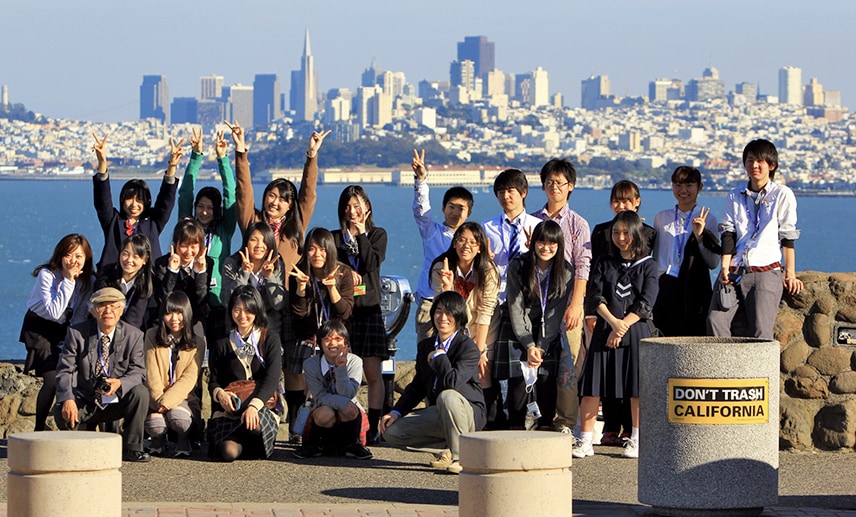
人生の分岐点となったホームステイ
そして、2017年4月、留学生として再び渡米。
私はまず、英語技能習得のために語学学校に通い、それに合わせてホームステイをしました。そして、このホームステイが、その後の人生の分岐点になったのです。
ホームステイ先のお宅はホストファーザーの家族と、ホストファーザーの弟夫婦が生活をしていました。彼らは、私の人生に大きく関わってくることになりました。
ホストファーザーの弟は、携わっていた仕事を辞めてコミュニティカレッジに通っていました。年齢は、40代後半。
日本でも最近は大人になって大学に通うのがメジャーになってきましたが、それでも多くの人はその選択をしません。
好きなときに大学に通っていい、人生の選択をしていい。
その挑戦をしている人がひとつ屋根の下にいたことは、私にとって、道を変える勇気となりました。
弟の奥さんは料理人をしていました。しかしレストランで働いているのではなく、自宅のキッチンで、オーガニックでヘルシーな料理を作り、それを配達していました。ファストフードを安くどこでも手に入れられるアメリカでは、健康食に大きな需要があったのです。彼女は、地元のファーマーズマーケットで野菜を仕入れて、それを調理するビジネスをしていました。
彼女は、私の夕飯も作ってくれていました。平日は朝晩、ホストファミリーからご飯が提供される契約でしたが、きっと他のどのお宅より良いものを食べていたと思います。そうして私は彼女と一緒にご飯を食べながら、アメリカの食材の事情、ファーマーズマーケットがどこにでもあり、誰もが食に気を使っていることを学びました。
「日本は、アメリカの10年遅れ」という言葉もあり、これからは日本でも農業、特に食材の部分でこのトレンドが輸入されると確信しました。
そんなある日、ホストファザーとのさりげない会話の中で将来の話になりました。
私の実家は農家で、20頭ほどの牛を飼い、10ヘクタールの水田で「ひとめぼれ」を育てて生計を立てています。私は、その9代目にあたります。農業の機械や技術も進歩しているのに、実家で見ていた農業は、毎年同じサイクルの繰り返し。頑張っている父の姿を見ても、農家を継ごうとは思えませんでした。
そんな私は、ビジネスを学びたい一心で留学を決意しましたが、その先のことは未定でした。そんな折、ホストファーザーは、「ビジネスがしたいなら、日本で農業やればいいじゃん」と言ってくれました。短い期間とはいえ、アメリカの農業の立ち位置を再認識した矢先の出来事で、その提案は、驚くほどすんなり腑に落ちました。
仙台高専でITの勉強をし、アメリカで英語と農業を学んだ。家は、9代続く農家。
こんな有利な条件で始められるビジネスもそうないなと思い、私は帰国を決意しました。
2度の渡米が、私の進路を、農業へ向かせる大きな転機となりました。
「僕はファーマー。そして農チューバ―」
現在、私は宮城県加美町でファーマーをしています。
仙台高専でのITの勉強や、アメリカへの語学留学など、回り道をしてきた私は最終的に「農業に注目を」というビジョンを持ちました。
だいぶ前から農業の高齢化、若者の離農や都市部の人口集中など、散々話題になっていたにも関わらず、農業の現状に改善の兆しは見えません。ここで、農業に未来はないと言って切り捨てるのは簡単なことです。他の仕事で人生を謳歌するのはきっと可能です。ですが、私は祖父のアスパラと祖母のトマトで育ってきました。孫の可愛さあってのこととは思いますが、二人が教えてくれた野菜の味は私にとって財産です。
そして、これは私に託されたバトンだと確信しました。
自分が、次の世代に、この美味しさを残す。
そう思ってアメリカ留学を4か月で切り上げて日本に帰ってきたのです。
私のファーマーとしての活動についてお伝えしたいと思います。
1つは、農業youtuber「農チューバ―」をしています。
Road to Forest
名前の通り、農業の作業風景やお米が成長する過程、和牛を育てる仕事の撮影をしています。人口100人を1人の農家が支えている現代、自分の口に入るものを自分で育てる人は少数派になっています。どうして?なんで?と考えたときに、色々思い当たることはありますが、私は「農業の情報が少ない」ことに注目しました。
サッカーを知らない人が、サッカーをできないように、農業に対して最低限の知識がないと、興味関心が向かないのです。そこで、私が田舎の農業や昔からの慣習を動画にすることで、農業への一歩目を踏み出してもらいたいと考えました。そこから広がって食材ロスのことを考えたり、農業体験へのきっかけになればと思います。
まずは、知ってもらうことからです。
撮影する日は、その日の天候や作業内容を見てからテーマを考え、機材を持ち畑に出かけます。農作業と撮影が終わり、自宅に戻り夕食を食べた後に編集作業に入ります。
現在、247本の動画をアップしました。自分に出来ることをコツコツ重ねてきたことで、8,650人の方にチャンネル登録をして頂いています。このように、YouTubeは発信力がある一方で、長い時間の動画は見られません。“伝えたい”と“見てもらう”のバランスにはこれからも気を遣いながら、皆さんに楽しんで頂ける動画をアップし続けます。
2つ目は、私は「育てた野菜は売らない」と自分に制限をかけています。
収入はYouTubeの広告収入や動画制作、田舎体験のアクティビティなどで得て、収穫した野菜は仙台の子ども食堂や近所のお家に、あとは地元の仲間やいつもお世話になっている飲食店、その年お世話になった人にお配りしています。
昔、テレビの特番で「新しいアイデアでお金を稼ぐには」という番組を見ました。どこかの大学の授業だったと記憶していますが、その中で「いまの方法と逆のことをしてみる」という教授のアドバイスがありました。例えば、カフェが従来と逆の方法でお金を稼ぐとしたら、お客さんがコーヒーを買うのではなく、お客さんにコーヒーを売らないでお金を稼ぐ。どんなことをすればそれができるかな?という授業でした。
想像しえないアイデアを出すために、真逆のアプローチから入る。
そのことが、ずっと頭に残っていて、いつか使おうと考えていました。野菜を育て始めたときに、まさに今こそ使う時だと思って、「育てた野菜は売らない」という制限をかけました。収入のほうが、いまだ大きな収益になってないこと以外は、アイデアは順調に形になっています。
農業に携わる人を増やしたい
間もなく震災から10年を迎えます。
東日本大震災の経験は、私のファーマーとしての活動に大きな影響を与えています。
私は、農業の普及と共に、地元宮城の、そして田舎生活の魅力を発信していくことで、復興や地域おこしに貢献していきたいです。
昨年、山奥にログハウスを建てました。ログハウスを建てる様子をYouTubeで紹介しながら、その場所に、不登校の子ども達を招待しました。東日本大震災で、電気やガスが止まってしまった経験から、自力で生活する力を育む拠点にしたいと考え、ログハウスには電力もガスも引いていません。子ども達は、自分たちで火を起こしたり、自分で食べるものは自分で採ったり、街中の生活では見ることのない動物に遭遇したり、と田舎ならではの自然環境の中で、不登校をしているとは思えない程、大きな声を出し、元気に、活発に、楽しそうに過ごしていました。
今後も、趣向を凝らして、このような体験を、たくさん提供していくつもりです。
さて、話は戻りますが、なぜ、私がファーマーと名乗っているか。
それは現代の農業と違った形で、農業を発展させていきたいからです。
農家の9代目として3年間、お米と牛を飼育してきましたが、このままだと日本で農業が衰退するのは火を見るより明らかです。
世界がSDGs達成に向かって動く中、日本でそのことに向き合っている人は、まだまだマイノリティーです。農業も例に漏れず、世界の主流と真逆の道を辿っています。
誰かが変えていかねばなりません。
私は、農業の世界でその役割を果たすつもりです。
「農業に携わる人を増やします」
Each one is just a small thing in the eyes of the vast earth.
On March 11, when I was still in the second year of junior high school, I was in my room together with two other friends.
We were playing a card game in the second floor when the earthquake suddenly occurred. We could not do anything but to endure the sound of the house creaking and the violent shaking. When the tremor gradually subsided, and when we had time to move, my father came running upstairs and shouted, "What are you doing? Hurry up and get outside!”
We rushed out, went down the stairs, put on our rubber shoes, then rushed out. There are lots of debris during an earthquake, so it’s better to wear rubber shoes.
Looking back, it was the evacuation drills that gave me the time to think and act like it.
A year after the disaster, I attended a science school called Sendai National College of Technology. When I was getting used to my new life, our English class teacher recommended the Support Our Kids program. As I had a strong yearning to go abroad, I immediately applied for the program. And about six months later, I went to the West Coast of the United States for a two-week homestay program. The two-week experience had a great impact on my sense of values.
I was most impressed by the vastness of the United States and the vastness of its nature as well. I knew from TV and other media that America was a huge country, but when I actually saw it with my own eyes, the scale was beyond my imagination.
The land stretched on forever and the sky was endless.
The world doesn't revolve around human beings, and from the perspective of the vast earth, each person is just a small thing.
I was 16 years old at that time when I thought about it, and I felt so much lighter.
After the experience, there was a part of me that said, "I want to go back to the U.S. again and study abroad for a longer period of time next time.”
When I returned to Japan, I decided to go to an American university after graduating from Sendai National College of Technology. I wanted to study business, so I planned to enter a community college and then go on to a university. I could study economics in Japan, but I wanted to study in a cutting-edge institution. People from all over the world gather in the U.S., whether in the field of technology or economics. Because I had actually visited the US once, I was able to feel this firsthand.

The homestay that became a turning point in my life
In April 2017, I went to the United States again as an international student.
First, I attended a language school to learn English skills, and then I did a homestay along with it. And it became the turning point for the rest of my life.
The homestay family consisted of my host father's family and his younger brother and sister. They were a big part of my life. My host father's younger brother had quit working and was attending a community college. He was in his late forties.
In Japan, attending college as an adult has recently become a major trend, but still many people do not make that choice. I believe you can attend college whenever you want, and you can make choices in your life. Having been with someone who was willing to take that challenge gave me the courage to change my path. His wife is a chef. She didn't work in a restaurant, but rather in her kitchen at home, making organic and healthy food and delivering it. In the United States, where fast food is cheap and available everywhere, there is a huge demand for healthy food. She is in the business of buying vegetables from the local farmer's market and cooking them.
She also cooked my dinner. My contract said that my host family should provide breakfast and dinner on weekdays, I feel that they served me the best food of all the other families.. As I ate with her, I learned about the food situation in the U.S., the ubiquity of farmer's markets, and how everyone cares about food.
She said, "Japan is 10 years behind the U.S.," and I was convinced that this trend would be imported to Japan in the future, especially in the area of agriculture and food.
Then one day, in a casual conversation with my host father, we talked about the future.
We are a family of farmers in Japan, raising about 20 cows and cultivating 10 hectares of paddy fields to grow "Hitomebore rice" for a living. I belong to the ninth generation of the family. Despite advances in agricultural machinery and technology, the farming I saw in my parents' home was a repetition of the same cycle year after year. Even though I saw my father working hard, I couldn't imagine taking over the farm.
I decided to study abroad with the sole intention of learning business, but I was undecided about what to do after that.
My host father said, "If you want to do business, why don't you try farming in Japan?”
The thing happened right after I had reaffirmed the place where American farming should be (or, The short-term, short-lived event that reaffirmed America's position in agriculture made the proposal surprisingly straightforward.)
I studied IT at Sendai National College of Technology and learned English and agriculture in the US. My family has been farming for nine generations, and there are no businesses that I can start favorably, or so I thought, so I decided to return to Japan.
My two trips to the U.S. were a major turning point in my career path toward agriculture.
I am a farmer and a Farming YouTuber.
I am currently working as a farmer in the town of Kami, Miyagi Prefecture.
After taking many detours, such as studying IT at Sendai National College of Technology and studying the English language in the U.S., I finally came up with a vision to focus on agriculture.
For quite some time now, there has been a lot of talk about the aging farming industry, young people leaving provinces, and the concentration of the population in urban areas. There is no sign of improvement in the current state of agriculture. It is easy to dismiss agriculture by saying that it has no future. I am sure it is possible to enjoy life doing other jobs. However, I grew up with my grandfather's asparagus and my grandmother's tomatoes. I know it’s because of their love for their grandchildren, but the taste of vegetables that they taught me is an asset.
I am convinced that this is a baton that has been entrusted to me.
I will leave this “deliciousness” to the next generation.
With it in mind, I quit my studies in the U.S. after four months and came back to Japan.
I would like to tell you about my activities as a farmer.
First, my activities as a Farming YouTuber.
Road to Forest
As the name suggests, I film farming scenes, the process of growing rice, and the work of raising Wagyu cattle. Today, one farmer supports a population of 100, and there are minority of people who grow their own food. Why? How come? When I thought about it, I could think of many reasons, but I focused on the fact that there is not enough information about agriculture.
Just as people who don't know anything about soccer can't play soccer, people who don't have a minimum level of knowledge about agriculture are not interested in it. That's why I decided to make a video about farming in the countryside together with old customs to encourage people to take the first step into farming. From there, I hope it will spread and encourage people to think about food loss and experience farming.
The first step is to let people know about it.
When filming, I will think of a theme based on the current weather, and then I will take my equipment out to the fields. By the end of the day, when I’m done, I go home and have dinner, and then start editing.
Currently, I have uploaded 247 videos. As a result of my hard work, around 8,650 people have subscribed to my channel. As we all know, the videos on YouTube have a lot of power to spread ideas, but if the videos are too long, then people will not watch them.So I will continue to upload videos that people can enjoy while paying attention to the balance between what I want to convey and what they want to see.
Second, I have set a limit to myself not to sell the vegetables I grow.
I earn income from YouTube advertising, video production, and country experience activities, and I give away the vegetables I harvest to a children's cafeteria in Sendai, to my neighbors, and to my friends, local restaurants, and people who have been good to me.
A long time ago, I saw a TV special program on how to make money with new ideas. I remember that it was a class at some university, and one of the professors gave the advice to "do the opposite” of what you are doing now. For example, if a café were to make money by doing the opposite of the conventional way, instead of customers buying coffee, they would make money by not selling coffee to customers. What kind of things can be done to make it happen? Well, that was the lesson.
To come up with unimaginable ideas, you have to start with the exact opposite approach.
This has stayed in my mind for a long time, and I have been thinking of using it someday. When I started growing vegetables, I decided that now is the time to use it, so I put a restriction on myself not to sell the vegetables I grow. The idea is shaping up well, except for the fact that the income has yet to become a significant revenue stream.
I want to increase the number of people involved in agriculture.
It will soon be 10 years since the earthquake.
The experience of the Great East Japan Earthquake has had a great impact on my activities as a farmer.
Not only will I support the spread of agriculture,
I also would like to contribute to the reconstruction and community reactivation by sending messages about how nice it is to live in my hometown Miyagi and living in the countryside.
Last year, I built a log house in the mountains. While filming the process of building the log house on YouTube, I invited children, who could not go to school because they had mental trauma.
The Great East Japan Earthquake caused the electrical power and gas lines to stop working, this made me realize that I should have this log house to give people some opportunities to learn how to live on their own, without the needs for comforts like electricity and gas, so I decided not to have these essential lines.
These children made their own fire, went to get their own food in nature, and met wild animals which they would never see in the city where they live. In this environment, they were so loud, active and so lively which was hard to believe that they cannot go to school because they have some trauma in their heart.
I will provide these opportunities with elaborate activities as much as I can.
Now, back to the story, why am I calling myself “FARMER”, not “NOUKA” in Japanese?
It's because I want to develop agriculture that is different from the modern way.
As the ninth generation of a farmer, I've continued the family tradition of growing rice and raising cattle, but I am afraid that agriculture in Japan will decline if nothing will change.
As the world moves toward achieving the SDGs, the people in Japan who are facing it are still a minority. In agriculture this is also not the exception, unfortunately the trend in Japan is following the exact opposite direction of the rest of the world. So someone has to change it.
I intend to play that role in the world of agriculture. I will make many people engage in it.
RESILIENCE
復興を志す
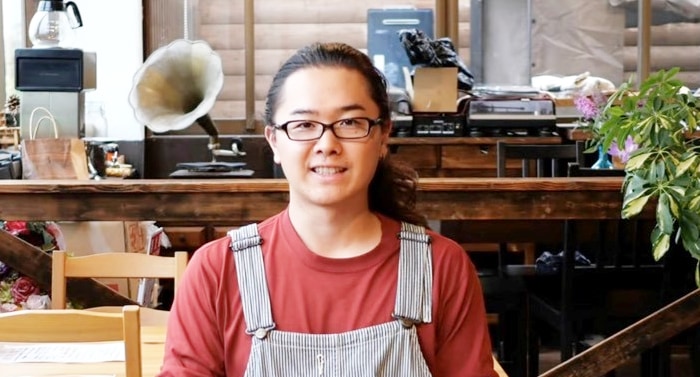
復興を志す 01
自分が次の世代に、この美味しさを残す。ファーマーそして農チューバーという挑戦。
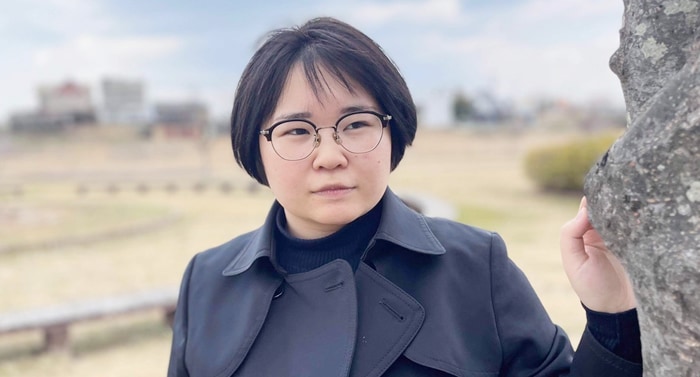
復興を志す 02
海外で得た「福島プライド」を、未来を担う子どもたちに伝えたい、育てたい。
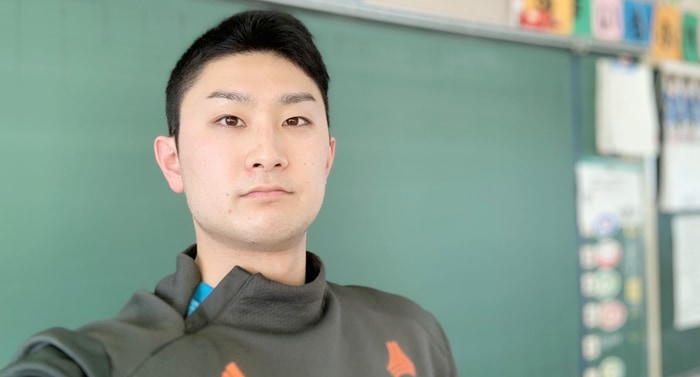
復興を志す 03
教える立場になった今、一番大切にしていること。「心を理解しようとすること」
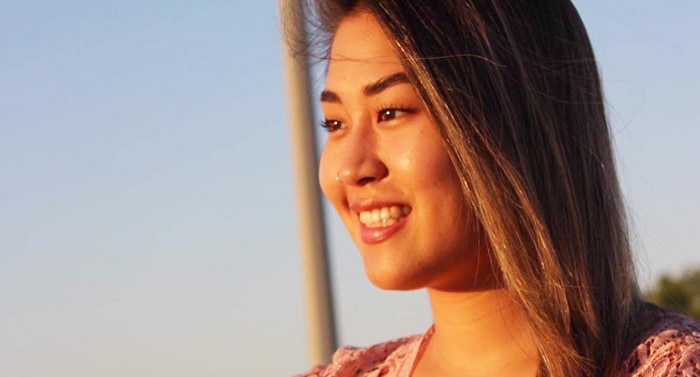
復興を志す 04
ドバイから、世界に通用する福島出身の日本人になりたい。
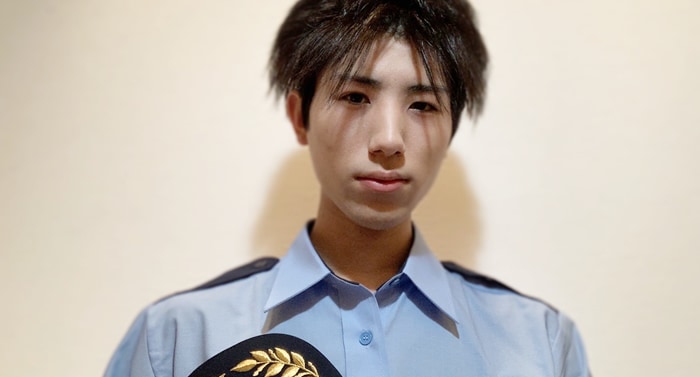
復興を志す 05
命が助かったからには、少しでも復興に役立つ大人になりたい
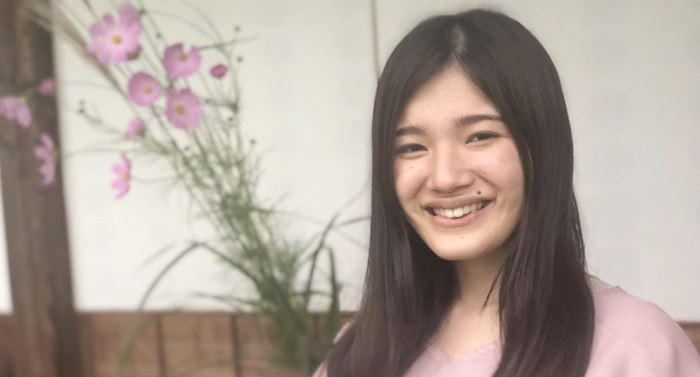
復興を志す 06
大人になった私が、今度は、地元・栗原の子ども達を応援したい
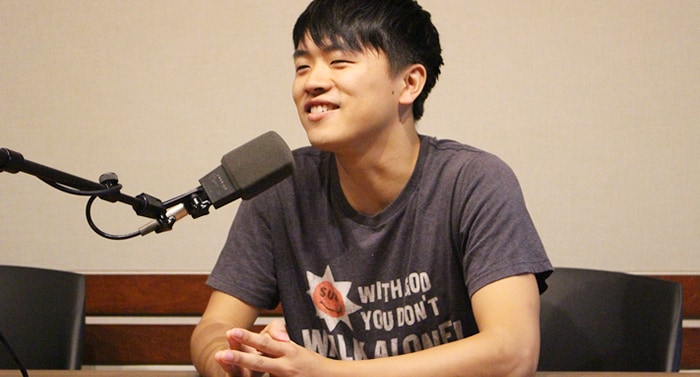
復興を志す 07
『恩送り』という、恩返しのカタチ。
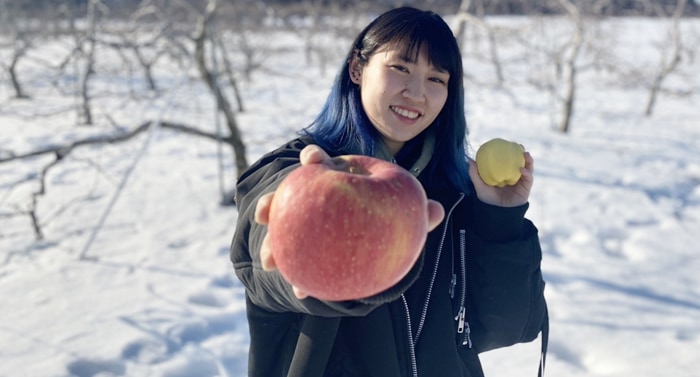
復興を志す 08
震災後の「あたりまえ」は、復興の軌跡
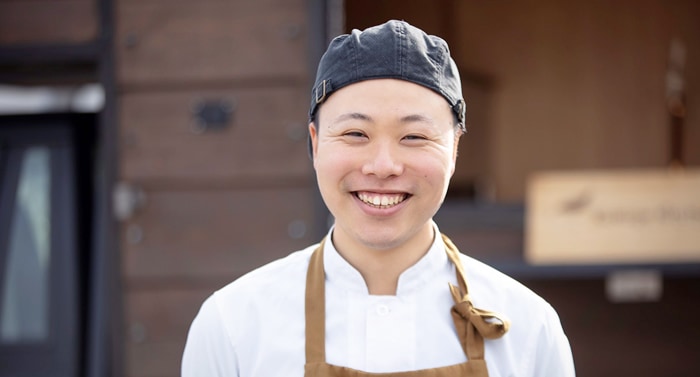
復興を志す 09
